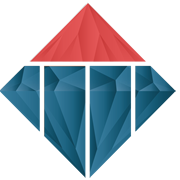
DISC Tool
Behavioural Assessment
How do I do what I do?
It is to this fundamental question that the DISC tool provides some answers.
Based on the emotions of normal people, this allows us to better understand how an individual is energised, how they deal with problems and challenges, people and contacts, pace and consistency and procedures and constraints, the environment in which they thrive and their responses to external pressures.

DISC Online Training
Understanding your DISC profile empowers you in numerous aspects of life, from personal interactions to professional collaborations. It’s a tool for enhancing communication, navigating diverse relationships, and leveraging your strengths.
So, let’s embark on this journey of self-discovery and enhanced communication. Uncover your DISC profile, and let the insights pave the way for more meaningful connections and effective collaboration.
DISC Training – On successful completion of the training, you will be awarded the designation Certified Professional Behavioural Analyst (CPBA) and receive a certification of training.

Part 1 Self-directed learning delivered on a learning management platform.
- Overview
- History
- The Assessment
- The Report
- Combinations of D,I,S and C
- Reading the Graphs
- Reading the Wheel
- Debriefing the Report
- Observing the DISC Styles
- Pure DISC Perspectives D
- Pure DISC Perspectives I
- Pure DISC Perspectives S
- Pure DISC Perspective C
- The Continuum D
- The Continuum I
- The Continuum S
- The Continuum C
Part 2 Self-directed learning delivered on a learning management platform with interactive Videos.
- Comprehensive review of Resources
- Build the DISC Model
- Debriefing Overview
- Graph Reading
- Debrief Steps
- Success Discovery Process
- Graph Reading Process
- Big-Little-Big
- Cheat Sheets
- Debriefing Guide
- Behavioural Factors
- Report Types
- Exam
- Marketing
- Your Debrief
- Practice Debrief
To become an TTI Certified Practitioner, you need to:
- Complete your personal online psychometric assessment (for the science you are training in) and receipt of report. 20 mins
- Complete all the online learning modules on the LMS Platform-approx. 6/8 hours of learning
- View all videos related to your course and relevant reading material (supplied) approx 8 hours of learning
- Attend and participate in the instructor-led personal debrief session (1 x 90 Mins )
- Complete practice debriefing of assigned partner report. (1 x 90 Mins)
- Complete and Pass the certification exam with a result of 80% or more. You will have two attempts to pass the exam. You can complete this self-guided program at your own pace and time.
Program Cost-€495 One science.
(Additional sciences cost -Two sciences €890/ Three sciences €1185/ Four Sciences €1380)
Note that you cannot use the assessments until you have successfully passed the exams. This ensures a solid understanding of the material. We are passionate about delivering excellence in our training.
“The pragmatic approach you have to using TTI Success Insights assessments as meaningful coaching tools and platforms and the richness of the material content is what stands out for me. You provide the expert guidance, knowledge and support not only at the start, but at regular intervals using a variety of methods. You regularly seek feedback and input and incorporate it into your approach and content. You’re always there offering support and guidance when needed.”
Ann Keevans,
Senior Director, Human Resources Ireland, Aerie Pharmaceuticals
Specimen Report

Applications

Sales & Customer Relations
In the commercial field, understanding one’s DISC profile makes it possible to adapt one’s interactions with customers, understanding and responding to their needs.
It also helps each salesperson understand which sales technique is best suited to them and in which phases of the sale they will naturally be more comfortable.

Recruitment & Integration
In recruiting, knowing the candidate’s behavioural preferences will allow you to conduct the interview in a way that puts them at ease and allows you to have a deeper conversation.
Although there is no good or bad behavioural profile, for a given position having a candidates profile will allow you to anticipate their job, team, supervisor and cultural match and avoid the risk of poor integration.

Management
How does the manager communicate – outgoing or reserved – and what is her focus – task/results or people/relationships.
How does she adapt her style towards each person to get the best from her team.

Personal development & professional effectiveness
In mentoring, coaching and training, DISC helps on issues relating to individual and team communications – getting to know oneself and others better to better appreciate oneself and others, and team building.
History and Theory
For millennia, men have observed each other and analysed each other’s behaviour. But this knowledge, based on instinct, did not yet have a name.

During the 20th century, the American psychologist William Moulton Marston developed a method to decipher and analyse these behaviours . His research, notably his work “ The Emotions of Normal People ” published in 1928, helped to consolidate and validate this language.

The DISC tool or Dominance, Influence, Steadiness and Compliance, was born. Marston did not invent a behavioural assessment; he did not even see the potential of his research. Nevertheless, the publication of his work helped fuel behavioral studies and this ultimately led to the development of the DISC tool , completing Marston’s initial thinking.
Everything you ever wanted to know about DISC

